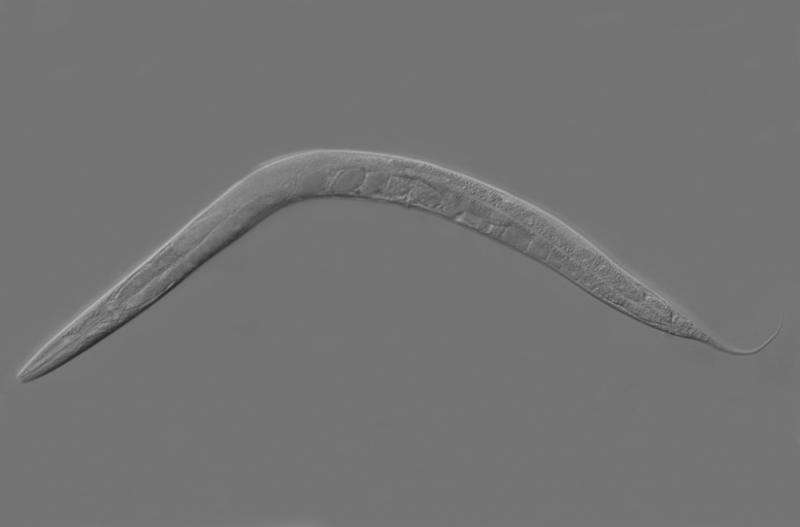Underlying instincts: An appetite for survival

Microscopic roundworms may hold the key to understanding what is happening in the brain when the instinct of an animal changes in order to survive. In a newly published paper in the journal Current Biology, University of Rochester Medical Center researchers found that a signaling system in the brain changes to redirect the behavior of an animal when their survival is at risk because there is not enough food.
The experiments were conducted in C. elegans—a microscopic roundworm that has been used by scientists for decades to understand the basic organization and function of the central nervous system and how it impacts behavior. Researchers found C. elegans hermaphrodites (the equivalent of females in this species) produce a pheromone that allows worms to monitor how crowded their environment is and how much food there is to go around. When food becomes scarce the aversion circuit is triggered in the animal and it becomes repelled by the pheromone.
"The key thing we identified is a molecular mechanism whereby an instinctive response can be suppressed under particular environmental conditions, namely, abundant food," said Douglas Portman, Ph.D., lead author of the study and professor of Biomedical Genetics. "Adaptively, it makes sense that an animal's instinctive response would have this kind of flexibility."
This underlying repulsive mechanism to the pheromone is present in both hermaphrodites and males, but researchers found that in males, the mechanism is overridden by another circuit that causes males to be attracted to the pheromone, a subtlety that could provide an understanding of how the neural circuits work that cause this change in behavior.
Understanding how basic decision-making mechanisms work gives insight into the inner workings of a more complex brain. "These findings lend important insight into the mechanisms by which animals detect and integrate multiple sensory cues to make adaptive behavioral decisions. Understanding how things like this work at the molecular level, provides a framework for understanding how much more complex brains work, and how genetic and environmental insults can 'break' things and lead to behavioral and psychiatric disorders."
More information: Jintao Luo et al, Sex-specific, pdfr-1-dependent modulation of pheromone avoidance by food abundance enables flexibility in C. elegans foraging behavior, Current Biology (2021). DOI: 10.1016/j.cub.2021.07.069
Journal information: Current Biology
Provided by University of Rochester Medical Center




















